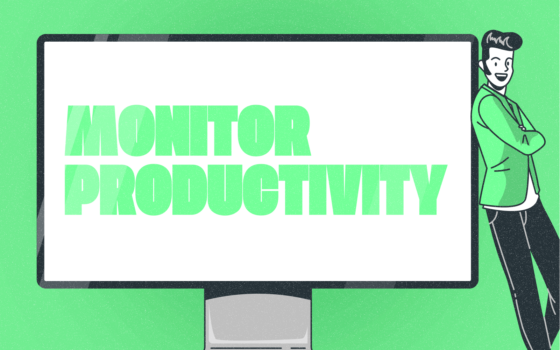What Is Critical Thinking Assessment?
Critical thinking assessment evaluates an individual's ability to analyze, interpret, and evaluate information objectively. It measures skills like logical reasoning, problem-solving, and decision-making. Commonly used in hiring, education, and professional development.
Critical thinking assessment is a crucial tool in today's complex professional landscape. It's not just about measuring intelligence; it's about evaluating how individuals process information, make decisions, and solve problems. Let's dive deep into this fascinating aspect of human resource management and educational evaluation.
Understanding Critical Thinking Assessment
At its core, critical thinking assessment is a method to evaluate an individual's ability to:
- Analyze information objectively
- Identify and evaluate arguments
- Recognize patterns and relationships
- Draw logical conclusions
- Solve complex problems
These assessments are designed to measure higher-order thinking skills that go beyond mere memorization or basic comprehension. They're particularly valuable in fields where decision-making under pressure is crucial, such as healthcare, law, finance, and management.
Types of Critical Thinking Assessments
There's no one-size-fits-all approach to assessing critical thinking. Different situations call for different types of assessments. Here's a breakdown of some common types:
| Assessment Type | Description | Common Use Cases |
| Multiple-Choice Tests | Standardized tests with predefined answers | Large-scale assessments, initial screening |
| Essay Questions | Open-ended questions requiring written responses | In-depth evaluation, academic settings |
| Case Studies | Real-world scenarios requiring analysis and solution | Business schools, professional development |
| Situational Judgment Tests | Hypothetical scenarios with multiple response options | Job interviews, leadership assessments |
| Performance-Based Assessments | Hands-on tasks or simulations | Technical fields, practical skills evaluation |
Key Components of Critical Thinking
To truly understand critical thinking assessment, it's essential to break down the components that these tests aim to evaluate. Here's a deeper look:
1. Analysis
This involves breaking down complex information into smaller, more manageable parts. It's about identifying relationships between ideas and recognizing patterns.
2. Interpretation
The ability to understand and explain the significance of information. This includes decoding meaning from various forms of data, whether textual, numerical, or visual.
3. Inference
Drawing logical conclusions based on available evidence. This skill is crucial in fields where decisions must be made with incomplete information.
4. Evaluation
Assessing the credibility and logical strength of arguments and information sources. This is particularly important in our era of information overload and misinformation.
5. Explanation
The ability to clearly articulate one's reasoning process. This is not just about having good ideas, but being able to communicate them effectively.
6. Self-Regulation
The metacognitive skill of monitoring and correcting one's own thinking. This involves recognizing biases and adjusting one's approach when necessary.
Fun Fact: The concept of critical thinking dates back to ancient Greece, with Socrates' method of questioning beliefs and assumptions. However, formal critical thinking assessments only gained popularity in the mid-20th century.
The Importance of Critical Thinking Assessment in HR
In the realm of human resources, critical thinking assessment has become an invaluable tool. Here's why:
- Improved Hiring Decisions: By evaluating candidates' critical thinking skills, HR professionals can better predict job performance and cultural fit.
- Enhanced Team Performance: Teams with strong critical thinkers tend to be more innovative and efficient in problem-solving.
- Leadership Development: Critical thinking is a key leadership skill. Assessing and developing this skill can help identify and nurture future leaders.
- Adaptability to Change: Employees with strong critical thinking skills are better equipped to handle organizational changes and industry disruptions.
According to a 2023 survey by the Society for Human Resource Management (SHRM), 93% of HR professionals consider critical thinking skills as "very important" or "essential" in job candidates. This underscores the growing emphasis on these skills in the modern workplace.
Popular Critical Thinking Assessments
Several standardized tests have been developed to assess critical thinking skills. Here are some of the most widely used:
| Test Name | Key Features | Typical Cost (2024) |
| Watson-Glaser Critical Thinking Appraisal | Measures inference, recognition of assumptions, deduction, interpretation, and evaluation of arguments | £39.95 per test (Approx. $50 USD) |
| California Critical Thinking Skills Test (CCTST) | Evaluates analysis, inference, evaluation, deduction, and induction | $20 – $25 USD per test |
| Halpern Critical Thinking Assessment | Uses both multiple-choice and open-ended questions to assess real-world scenarios | €15 per test (Approx. $16 USD) |
| Cornell Critical Thinking Test | Focuses on induction, deduction, credibility, and identification of assumptions | $295 for a set of 25 tests (Approx. $11.80 USD per test) |
It's worth noting that while these tests are widely recognized, they're not without criticism. Some argue that standardized tests can't fully capture the nuances of critical thinking in real-world situations.
Implementing Critical Thinking Assessments: Best Practices
For organizations looking to incorporate critical thinking assessments into their HR processes, here are some best practices to consider:
- Align with Job Requirements: Ensure the assessment aligns with the specific critical thinking skills required for the role.
- Use Multiple Methods: Combine different assessment types for a more comprehensive evaluation.
- Provide Clear Instructions: Ensure candidates understand what's expected of them during the assessment.
- Consider Cultural Bias: Be aware of potential cultural biases in assessment questions and adjust accordingly.
- Offer Feedback: Use assessment results as a development tool by providing constructive feedback to candidates or employees.
- Regular Review: Periodically review and update your assessment methods to ensure they remain relevant and effective.
Caution: While critical thinking assessments are valuable tools, they shouldn't be the sole factor in hiring or promotion decisions. They should be part of a holistic evaluation process.
The Future of Critical Thinking Assessment
As we look ahead, several trends are shaping the future of critical thinking assessment:
1. AI-Powered Assessments
Artificial intelligence is being increasingly used to create more dynamic and adaptive assessments. These AI-driven tests can adjust difficulty levels in real-time based on the test-taker's performance, providing a more accurate evaluation.
2. Virtual Reality (VR) Simulations
VR technology is opening up new possibilities for immersive, scenario-based assessments. These can provide a more realistic context for evaluating critical thinking skills in action.
3. Continuous Assessment
There's a shift towards ongoing assessment rather than one-off tests. This approach aligns with the idea that critical thinking is a skill that can be developed over time.
4. Focus on Emotional Intelligence
There's growing recognition of the interplay between critical thinking and emotional intelligence. Future assessments may incorporate elements that evaluate how emotions impact decision-making processes.
Challenges in Critical Thinking Assessment
Despite its importance, assessing critical thinking is not without challenges:
- Subjectivity: Evaluating open-ended responses can involve a degree of subjectivity.
- Time and Resource Intensive: Comprehensive assessments can be time-consuming and expensive to administer and evaluate.
- Cultural Considerations: Critical thinking may be valued differently across cultures, potentially impacting assessment results.
- Overemphasis on Speed: Some assessments prioritize quick responses, which may not always reflect real-world critical thinking scenarios.
Addressing these challenges is an ongoing process in the field of psychometrics and organizational psychology.
Critical Thinking in Different Industries
While critical thinking is universally valuable, its application can vary significantly across industries. Here's a glimpse into how different sectors approach critical thinking assessment:
| Industry | Focus Areas | Common Assessment Methods |
| Healthcare | Diagnostic reasoning, ethical decision-making | Case studies, simulations |
| Finance | Risk assessment, market analysis | Quantitative reasoning tests, scenario-based questions |
| Technology | Problem-solving, innovation | Coding challenges, design thinking exercises |
| Education | Pedagogical reasoning, curriculum development | Lesson plan creation, teaching demonstrations |
| Law | Legal analysis, argumentation | Case briefs, mock trials |
This industry-specific approach ensures that critical thinking assessments are relevant and applicable to the unique challenges of each field.
Developing Critical Thinking Skills
While assessment is crucial, it's equally important to focus on developing these skills. Here are some strategies that organizations can implement:
- Workshops and Training: Organize regular workshops focusing on different aspects of critical thinking.
- Mentorship Programs: Pair less experienced employees with seasoned critical thinkers.
- Encourage Questioning: Foster a culture where asking questions and challenging assumptions is encouraged.
- Cross-Functional Projects: Expose employees to diverse perspectives by involving them in cross-departmental initiatives.
- Reflective Practice: Encourage employees to reflect on their decision-making processes and learn from both successes and failures.
"The important thing is not to stop questioning. Curiosity has its own reason for existing." – Albert Einstein This quote encapsulates the essence of critical thinking – a perpetual state of curiosity and inquiry.
Conclusion
Critical thinking assessment remains a cornerstone of effective talent management and development. As we navigate an increasingly complex and rapidly changing business landscape, the ability to think critically becomes ever more crucial. While challenges in assessment persist, ongoing advancements in technology and our understanding of cognitive processes continue to refine and improve these tools.
For HR professionals and organizational leaders, the key lies in striking a balance – leveraging these assessments effectively while recognizing their limitations. By doing so, we can foster workplaces that not only value critical thinking but actively nurture and develop this essential skill set.
As we look to the future, it's clear that critical thinking will remain a vital competency across industries. The organizations that excel in assessing and developing this skill will be better positioned to innovate, adapt, and thrive in an ever-evolving global economy.
Remember, critical thinking isn't just about having the right answers – it's about asking the right questions. And in that pursuit, we continue to refine our methods of assessment and development, always striving for better ways to understand and enhance this fundamental human capability.


